This is the shelf of items and moments I have written thoughts about. You can also see the shelf cover gallery, the shelf of everything, or the shelves of items by year finished.
Proto: How One Ancient Language Went Global
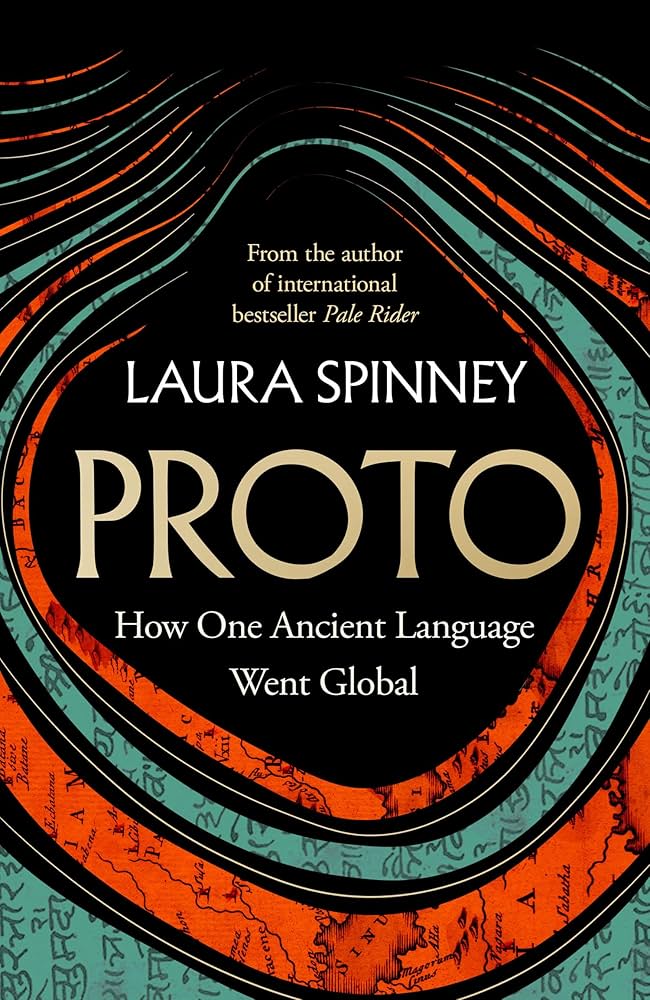
Finished — 2025-09-26
Started — 2025-07-22
A welcome recommendation on Threads and a lucky find on my first trip to the foreign-books specialized Kinokuniya in Shinjuku. What a long-reverberating delight it was to have this book in my backpack for two months, crawling through it at restaurants and cafes in Aoyama and Jinbōchō after dropping my son at summer science school, on a Tōhoku road trip, and around Kanamachi. The volume of notes I took, and the genealogy dive I went on, should be testament to it.
- Humans already had speech before becoming Homo sapiens
- children grew up hearing multiple languages
- Neolithic 14k years ago: cultivation begins; 10 million + humans; 15k languages; more than any other time
- Dead relatives of latin: Umbrian, gothic
- Languages prior to national borders around the enlightenment were much blurrier, not a crisp hierarchical tree at all
- Think CKIII
The Indo-European language family enjoys the dubious honour of being the one on which historical linguists cut their teeth. Later, they took the skills they honed there and applied them to other language families. Indo-European is consequently the best documented and in many ways the best understood of all the world’s language families, but it also drags the most outdated intellectual baggage behind it. It’s like the star patient of a tail-coated nineteenth-century doctor, hauled out woozily for public display, underwear slipping off its shoulder, fêted and abused in equal measure.
Historical linguistics probes the history that languages carry within themselves; archaeology tracks ideas and knowledge, the ingredients of culture; genetics tracks people.
ダンジョン飯
1


Finished — 2025-09-19
Started — 2025-08-19
I think my soul treats classic dungeon-crawling aesthetics as a necessary nutrient, especially in the autumn and wintertime. Over the years I have gotten my intake from TTRPG sourcebooks, Etrian Odyssey, Dwarf Fortress, and other such supplements. This is a welcome addition to the diet, delivered on a substrate of wholesome manga heart.
BEAT at Nippon Budōkan

Finished — 2025-09-01Before the show I met a fellow chilling by the drink machines on the waterside in Kitanomaru park, wearing a Rovo shirt, and got to talking for upwards of two hours. It turned out we’d both seen Rovo open for Clammbon at Liquid Room in 2002. He had encyclopedic knowledge of prog and classic rock, and had traveled to Europe and America numerous times to see some of my favorite bands. He clued me in to a Les Claypool appearance coming up at the Blue Note Tokyo in November.
I had sprung for the highest tier of ticket, guessing that this might be my last chance to see a semi-official King Crimson performance. I’m still working on inhabiting the right state of mind when at a concert, rather than just letting my mind wander in the default mode network. But I arrived at a pretty good meditative state of contemplating the accomplishment of such an extraordinarily low-entropy state. And generally recognizing that these musicians gave me a glimpse of the Eternal when I was particularly receptive to it as a teenager.
Quest

Author — TC SottekFinished — 2025-09
Started — 2025-09
This was a fine part of my grand TTRPG system hunt of 2025. I appreciate its fresh, modern, digital-first presentation and its breaking free from the D&D-rooted conventions that most games are still rooted in. I thought this might be a good system to run for my kid, but it’s a bit too high-concept and geared toward improv-ready grown-ups, versus Ryuutama which I ended up choosing instead.
(P.S. — This is the first Picocosmographia entry I’ve written using my new AI-assisted process. It reads my OmniFocus queue of books to write about, creates Hugo drafts with correct metadata, and selects a random one for me to write about.)
やまなし

Author — 宮沢賢治Finished — 2025-08-27
When I got very into the band Clammbon, my wife’s sister immediately recognized where their name had come from: this short story which is commonly read in grade school. It’s apparently commonly assigned in order to get children thinking about what ambiguous elements in a story might refer to, and each person develops their own idea of what the mysterious figure “Clammbon” mentioned in the beginning of the story might be.
I always meant to read the story myself, and found a collection on the shelf at the Katsushika Central Library, where I spend a lot of time these days waiting for my own children to do various activities about town. It didn’t make an especial impression on me, and I think I still have some study to do about its possible meanings, but I’m glad I finally traced the name of my beloved band back to its origin.
The Genetic Book of the Dead

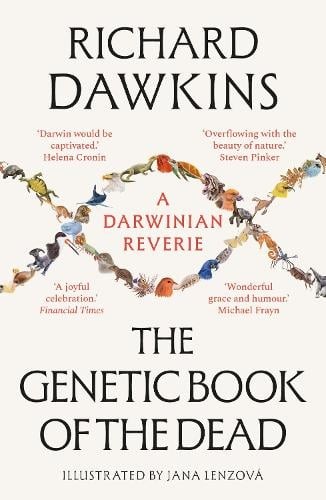
Finished — 2025-08-19
Started — 2024-12-31
Dawkins is of course the author who kicked off my adult nonfiction reading habit, and I’ll always read his new book when it comes out. I don’t know how many more times that will happen, if any. But I found “a sense of wonder” in his explication of how the immortal gene works, stumbling into the invention of such a vast and strange array of organisms along the way.
Sir D’Arcy Thompson (1860–1948), that immensely learned zoologist, classicist, and mathematician, made a remark that seems trite, even tautological, but it actually provokes thought. ‘Everything is the way it is because it got that way.’
The primatologist Richard Wrangham has promoted the intriguing hypothesis that the invention of cooking was the key to human uniqueness and human success. He makes a persuasive case that our reduced jaws, teeth, and guts are ill-suited to either a carnivorous or a herbivorous diet unless a substantial proportion of our food is cooked. Cooking enables us to get energy from foods more quickly and efficiently. For Wrangham it was cooking that led to the dramatic evolutionary enlargement of the human brain, the brain being by far the most energy-hungry of our organs. If he’s right, it’s a nice example of how a cultural change (the taming of fire) can have evolutionary consequences (the shrinking of jaws and teeth).
The Eye of the Heron

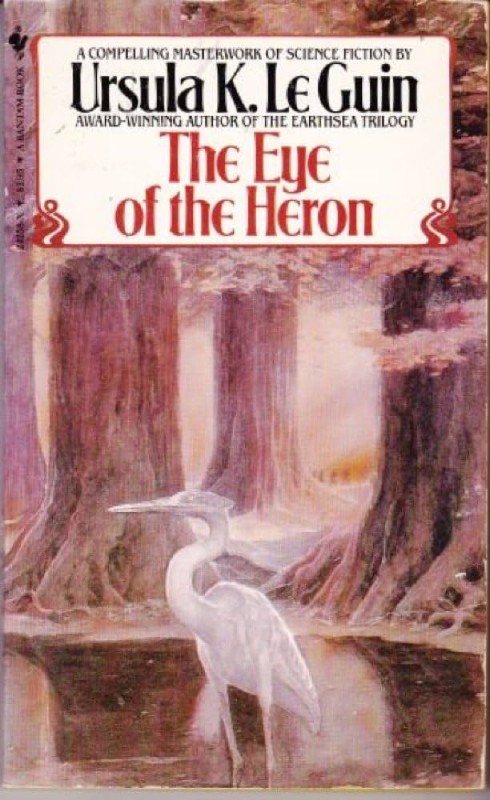
Finished — 2025-06-22
My read-through of the five novels in this Library of America volume continues. A few images and moments certainly grabbed hold of me and put me in a pretty particular 1978 SF state of mind. Other moments felt like too bare an exposure of the author’s own opinions about how societies ought to work; Always Coming Home seemed to me to be a more thorough and nuanced realization of a similar aim.
Luz Marina Falco Cooper sat in the deep window seat, her knees drawn up to her chin. Sometimes she gazed out through the thick, greenish glass of the window at the sea and the rain and the clouds. Sometimes she looked down at the book that lay open beside her, and read a few lines. Then she sighed and looked out the window again. The book was not interesting. It was too bad. She had had high hopes of it. She had never read a book before. She had learned to read and write, of course, being the daughter of a Boss. Besides memorizing lessons aloud, she had copied out moral precepts, and could write a letter offering or declining an invitation, with a fancy scrollwork frame, and the salutation and signature written particularly large and stiff. But at school they used slates and the copybooks which the schoolmistresses wrote out by hand. She had never touched a book. Books were too precious to be used in school; there were only a few dozen of them in the world. They were kept in the Archives. But, coming into the hall this afternoon, she had seen lying on the low table a little brown box; she had lifted the lid to see what was in it, and it was full of words. Neat, tiny words, all the letters alike, what patience to make them all the same size like that! A book—a real book, from Earth. Her father must have left it there.
“Sasha’s house is down there,” said the variegated child, pointing down a muddy, overgrown lane, and sidled away so effectively that he seemed simply to become part of the general mist and mud.
The Ministry for the Future

Author — Kim Stanley RobinsonFinished — 2025-06-01
Started — 2025-03-17
I’ve been meaning to read some KSR since college, when my roommate recommended the Mars trilogy. It took reading his Wolfe- and Proust-adjacent A Story to get me to pick a novel of his and go for it.
I sure do appreciate a story grounded in a scientific understanding of how things actually work. It was a gravely curious exercise to compare KSR’s 2020s Earth, deteriorating on account of climate change, to ours, deteriorating on account of pandemic and social fabric rot. Ultimately I was mortified by what appears to be an argument that “If we are gonna get anything done, first some activists are gonna have to go systematically assassinate the 1,000 worst capitalists.” And everything in the book about expecting people to see a better system and just happily adopt it because it’s obviously better, especially the bit where the population of Earth switches away from existing social media to a Mastodon-alike because it’s “free and open”, gave me Gell-Mann nervousness about the rest of the book that I don’t have intimate professional knowledge of.
Ultimately, I appreciate the utility of a novel that attempts to present a credible account of how the world may end up in the near future, to motivate people to take some part in shaping how it does actually end up.
ファイブスター物語
15


Finished — 2025-05-31
Started — 2025-04-16
The bit with Weinzel and Palsuet meeting Mrs. Cyan stands out as one of my favorite episodes of all of FSS: character drama that also enriches the history and culture of the Joker Star Cluster. As is my new method, I skimmed over a bunch of the standing around in nondescript outdoor environments yelling about military campaigns.
ひらやすみ
6


Finished — 2025-04-25
This has continued to be the representative heartwarming slice of life manga of recent years. Every line is gently rounded, every corner softened — both in the art and in the story.
ファイブスター物語
14

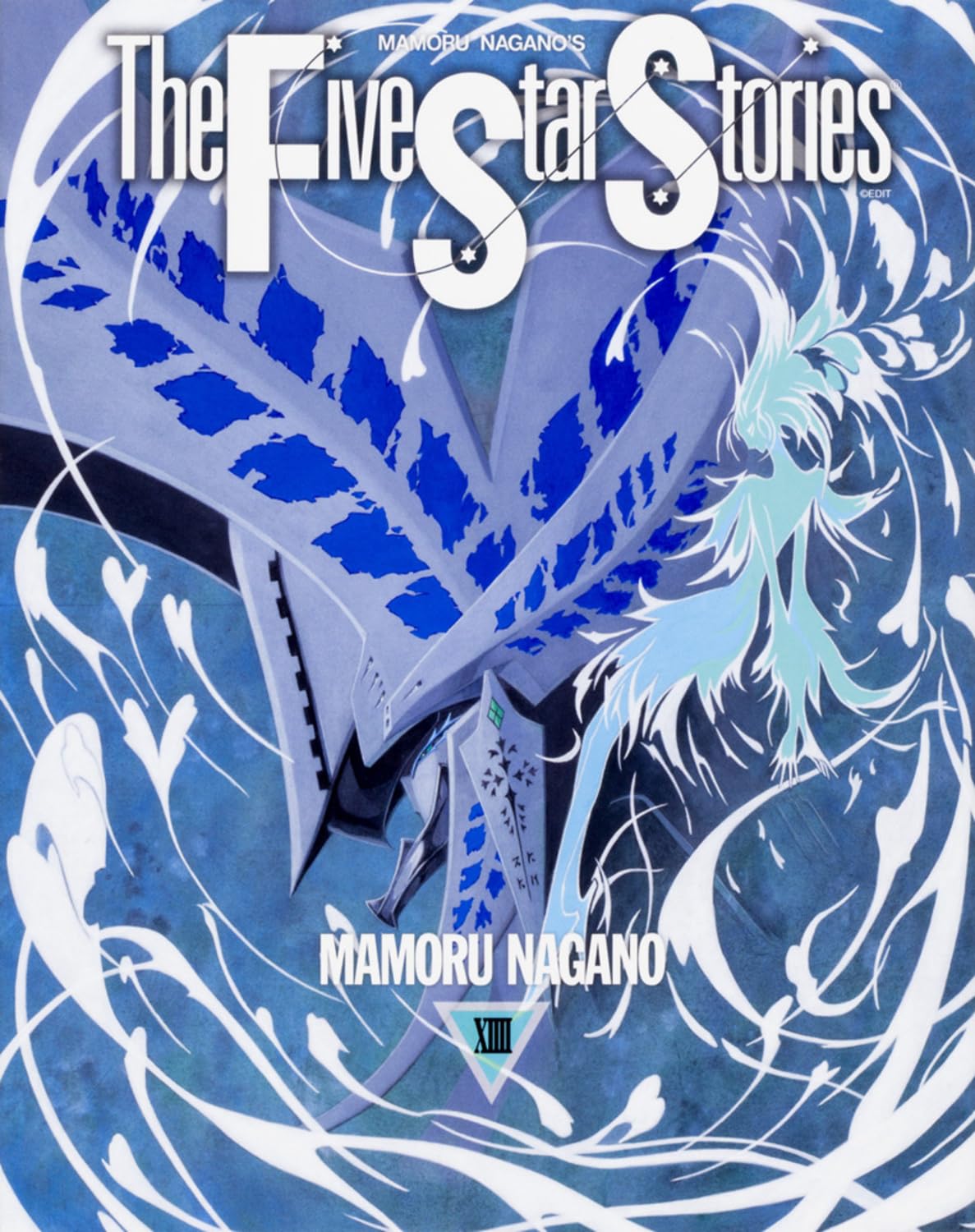
Finished — 2025-04-15
Started — 2021-02-07
Four years trying to get through this; the hardest volume for me, on account of how much of it is just military operations conveyed by close-ups of characters talking from inside GTM cockpits or vague “outside” locations, with minimal detail in the way of environments, objects, culture, or general sense of flavor. Every now and then you get to look at a GTM from the outside.
But even Nagano advises that folks skip ahead whenever they find they’re not enjoying an FSS story, and in the spirit of tadoku I finally took him up on it. I dashed through to the end and into Volume XV, already bringing me back to what I love about this series.
スピリット サークル
2

Author — 水上悟志Finished — 2025-04-15
Started — 2025-03
This volume deepens the sense of what it might really be like to become aware of one’s past lives, if such a thing were true. It successfully made me feel the gravity of waking up having witnessed your own entire lifespan in a medieval Europe or an ancient Egypt.
Off Book 340: Spark of Salvador Dali

Author — Jessica McKenna & Zach ReinoFinished — 2025-04
It may be my favorite Jessica McKenna fact that she of course always built Lego sets exactly according to the instructions and then left them in that perfectly constructed state. The childhood version of me who did that, displaying them all on a shelf, appreciates her for that. (It also seems significant that I later dumped all the Legos in a huge bin and invited the neighborhood over to create their own domains all across my room for a summer.)
In the Shadow of Young Girls in Flower

Author — Marcel ProustFinished — 2025-03-30
Started — 2025-01-27
I’ll forever treasure the ritual of gasping at a passage (usually encountered at the Katsushika Central Public Library while waiting for my kids to finish some activity in the neighborhood) pulling out my phone, capturing it with Apple’s OCR, then pasting it into Ulysses and into my iMessage thread with Sben, to kick off a little discussion about it.
This is also the first volume I intentionally read in multiple translations at once, depending on the situation: the Penguin Grieve when I had the library book handy, and the Yale Carter on the Kobo otherwise.
The dogs bark, the caravan moves on Arab proverb
オバケッタ

Author — Co.山田うんFinished — 2025-03-29
This was our entry into bringing kids to stage shows in Japan. Rey and I traversed Tokyo together to the majestic New National Theater and saw this, Obachetta, a colorful and mostly wordless dance performance on the theme of his beloved obake: countless folkloric Japanese ghosts and monsters. The show was entertaining, Rey was riveted, and I was thrilled by the stack of artsy flyers for other stage shows in Tokyo, hefty with promise that this is an entire scene, an entire lifestyle, that we can enter into as a family.
A Story

Author — Kim Stanley RobinsonFinished — 2025-03-16
KSR on Wolfe, including a detour through Proust!
What I mean is that after Wolfe read Proust, he understood he was free, free to become himself in any way he wanted, to become, like Proust, one of the great Modernist writers, all of whom make their own tradition, style, subject matter, and reality. After you’ve read a novel that contains a 240-page garden party, why should you fear anything? You can’t. Anything is possible.
A genius in Wolfe: and if there are any fellow postmodern materialists reading this and groaning at the idea of there being anything unusual inside an artist or anyone else, anything beyond the workings of the brain, I will agree immediately, but point out that the latest news from brain science makes it clearer and clearer that saying “only the brain” is not much of a delimiting statement. The brain is not a clockwork, nor a steam engine, nor a binary or digital computer, nor any of the machines we conceptualize it to be with our simple metaphors based on our own feeble handiwork, as if the brain could only be as complex as something we ourselves could make. Very much not the case. The brain is a kind of pocket universe. The mind is huge, and consciousness a small part of it. The unconscious may well be inhabited by “subroutines,” as the computer people would have it, processes that may actually be more like characters. Maybe they are like Jungian archetypes—a shadow seems likely, perhaps an anima or animus—but who knows. Very probably the brain consists of organizations even stranger and more various than that. It may be a kind of library of stories all telling themselves at once. And by way of stories written down, one unconscious mind communicates with other unconscious minds.
Off Book 338: Mistake on a Plate

Author — Jessica McKenna & Zach ReinoFinished — 2025-03
Favorites:
- “All Are Welcome As Long As You Come Correct”
- Blake Sparkles' short jingle about the lemon drops
Notable for being Zroundbls’s early favorite during their induction into fandom. Also notable for having a surprisingly satisfying moral arc. Feels like part of a little golden age for Off Book, along with “The Center of the Bullseye”, “The Names of Our Family”, etc.
Off Book 339: A Club for You

Author — Jessica McKenna & Zach ReinoFinished — 2025-03
Favorites:
- “A Bunch of Little Guys Pretending to Be a Bigger Guy” (38:00)
- “A Bunch of Little Guys Pretending to Be a Bigger Guy (Reprise)”
Off Book 340: The Center of the Bullseye

Author — Jessica McKenna & Zach ReinoFinished — 2025-03
Favorites:
- All-time favorite Off Book song: “Keeping it Plain”. I’d like to analyze this one line by line, rhyme by rhyme.
- “I Will Help You Follow the DoorDash Driver”
スピリット サークル
1

Author — 水上悟志Finished — 2025-03
Started — 2025-03
I’d worked my way through a couple of volumes of 惑星のさみだれ from the big Mizukami pile that my brother-in-law lent me, but set it aside for its unremitting shounenness. This series, he assured me, is more “spiritual”. So far I’m quite enjoying the admixture of the everyday modern Japanese setting and historically-inspired past societies.
Swann’s Way

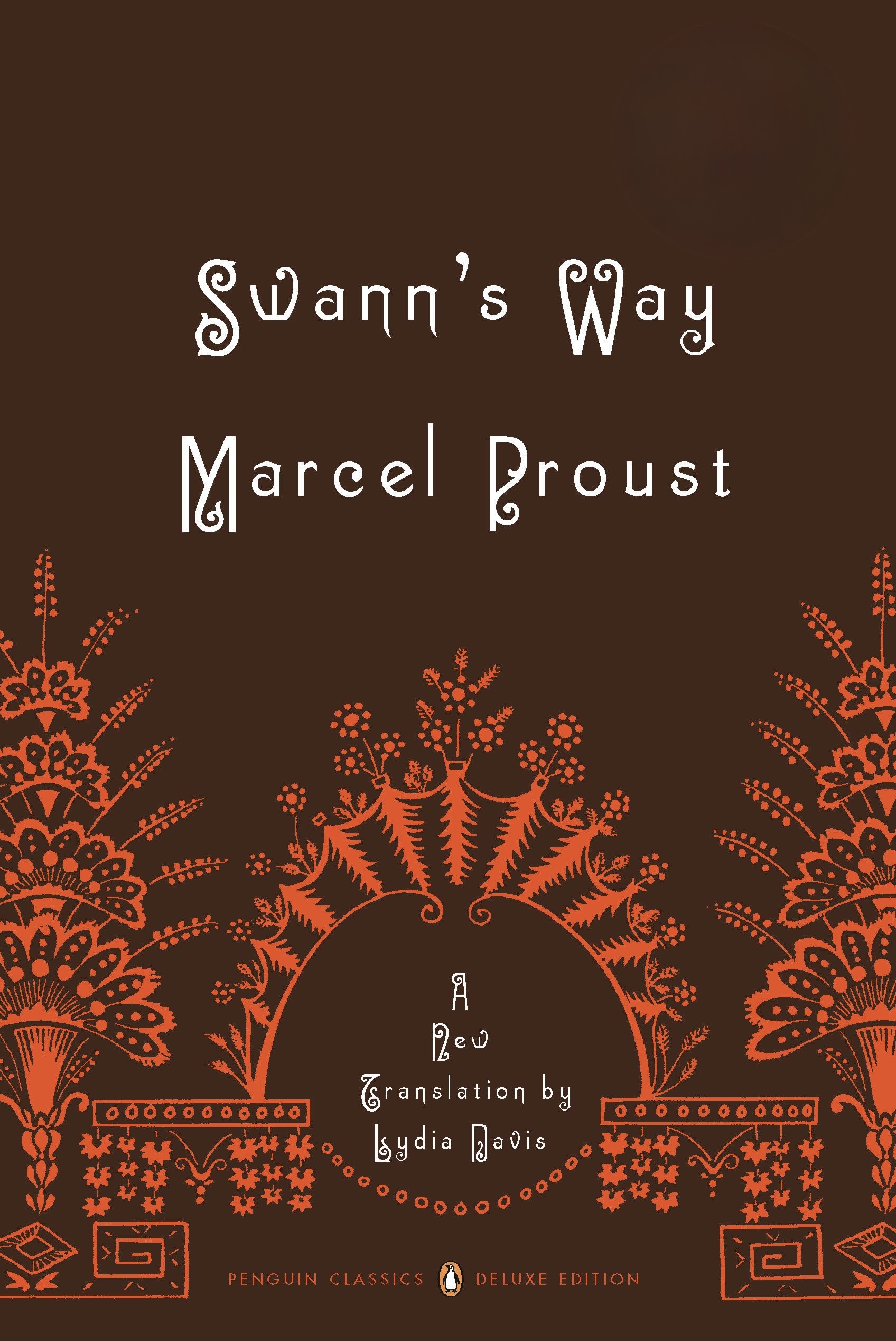
Finished — 2025-01-27
Started — 2024-11-25
I’d been curious about reading Proust for about a decade: I gave him the tentative research treatment in bookstores where I examined the editions they had, practiced on CDs in the 1990s when you couldn’t know much about an album except what you could glean from the packaging. I read De Botton’s How Proust Can Change Your Life and then didn’t read Proust for eight years thereafter. I read the Atlantic article about reading Proust on one’s phone. I stood in a Brooklyn bookstore on a work trip and seriously considered picking up the shiny red Swann’s Way there, but had to admit I couldn’t be sure I’d really read through it, let alone the rest of the volumes.
Upon moving to Tokyo, the Katsushika Central Library became one of my favorite places. We visited nearly every day in the course of bringing the kids to Kumon, Shichidashiki, or other activities. On the shelf in the quite decent English section I found two volumes of the Penguin Proust, translated by seven different people, and learned that two more were in the stacks. All of my prior research and concern about getting just the right translation and the right format were replaced by the notion of how meaningful it would be to start reading Swann’s Way any time I was in the library, and only when I was in the library. It could be something to look forward to, something to add beyond my regular reading pile, and something to progress slowly without worrying about how long it took to finish.
I lasted for a few weeks of only reading it when physically present in the library building, but eventually had to admit that I was captivated enough to want to borrow it for an overnight stay at my in-laws’. Not long after, I also got ahold of the ebook edition so that I could continue reading at any time.
A Month in the Country


Finished — 2025-01-05
Started — 2024-12-30
There are some mysterious items on my OmniFocus project “Books to Read v9”. Usually I try to capture where I got a recommendation and why it stuck enough for me to record it. This one was just there, and when I looked at it I got a vague sense that whoever had recommended it had made it sound meditative and nourishing.
On a rare visit to California for work, I discovered the utopian Kepler’s Books, which felt like it belonged in a hip urban center, not a dismal walk down the unwalkable American street from my suburban hotel. There I spent an agonizing amount of time wandering from section to section, squinting at every recommendation card, trying to look like I needed a staff member to ask, “Is there anything I can help you find?” But I was too exhausted from travel and emotionally raw to approach someone myself, and unsure what question I would even ask. In the end I picked out this book and Thiese’s Notes on Complexity, all on my own.
I made some of my most vivid and satisfying reading memories carrying this around under my arm, sneaking pages whenever I could. On a trip to the publicly-owned lodging in Nikkou, maintained for residents of Tokyo’s Katsushika ward. At a tsukemen joint around the corner. At my in-laws’ creaky four-story house, about as old as me.
A Canticle for Leibowitz

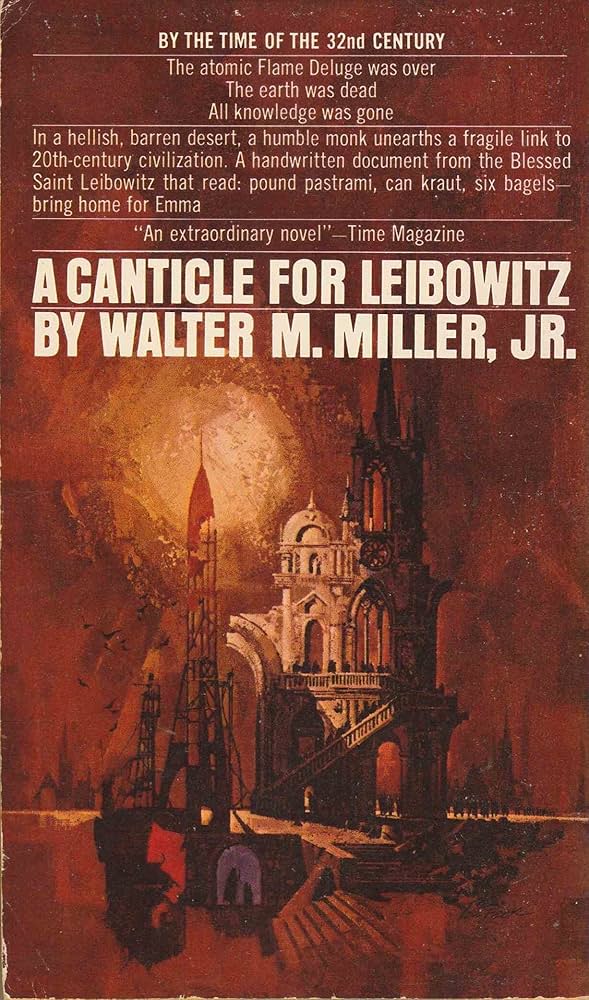
Finished — 2025-01-01
Started — 2024-12-07
Late in high school I was sitting in the lobby of the administrative wing of my boys’ Catholic school. I cannot for the life of me remember what I was there for, but it has an equal chance of being because I was in big trouble for something, or because I was doing some sort of collaboration or meeting with someone important at the school. I was doing a reread of the Hitchhiker’s Guide to the Galaxy, perhaps in the big Bible-looking edition I was proud to have. Someone’s mom was coming out from the school office and she stopped in her tracks, striking up a conversation with me about books. She was impressed to see a student her son’s age reading one of her favorites. I have no idea whose mom she was. We connected easily and she made several recommendations, including A Canticle for Leibowitz and the work of Tom Robbins. I ended up reading several Robbins books soon after, but never got around to Canticle. (At some point I think I started confuse it with Flowers for Algernon.)
There’s apparently a copyright issue keeping the book off of the US Kindle store, but I found a SF Masterworks edition on the JP store and stripped the DRM.
ChatGPT looked at my reading list and, based on what it knows about me, acted surprised that I hadn’t read it yet.
レーエンデ国物語

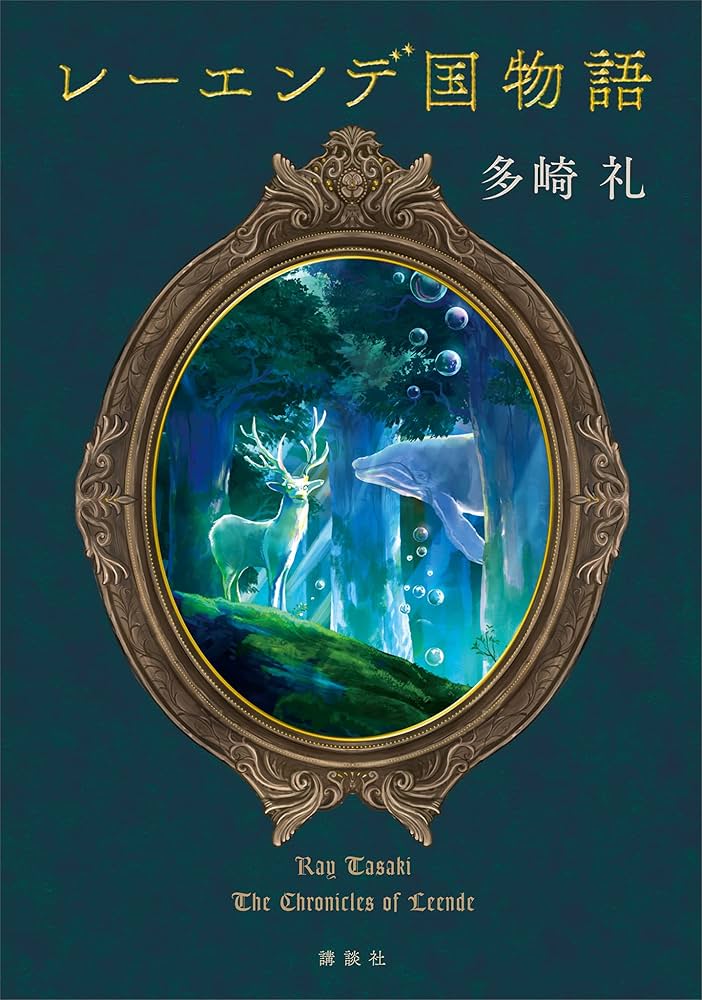
Finished — 2024-12-24
Upon moving to Tokyo I was determined to get reacquainted with the current landscape of fiction, with how to navigate the overwhelming bookstores, and to choose something just right to read through like a relatively normal member of the Japanese-language reading public. On visits to my local bookstores, this volume kept standing out to me. I committed to reading it, and diligently dungeon-crawled through more than half of it at about a page or two a day. I took a break to read some other books in Japanese, namely the lighter Recovery Kabahiko and some manga. It eventually called me back and I was proud to finish it just over a year after beginning it.
Tasaki has a prodigious number of books out in this series and others, highlighting how hard it would be for me to truly latch on to an author and follow all of their work. She can write quite a lot faster than I can read. I likely won’t continue on with this series any time soon. But it felt like a fine journey to take on my first year living here, and it’s a book I’ll always look back fondly on.
My enjoyment of what turned out to be a pretty standard fantasy novel was closely correlated to how much it felt like a Dwarf Fortress campaign (charting the geography of a potential trade route, secrets of castle architecture, carving a defensible complex into a mountainside, risky endeavors in controlled flooding), and inversely to how much it felt like an anime (“You mustn’t go, it’s too dangerous!” “No you mustn’t go, it’s too dangerous!”).
Polostan

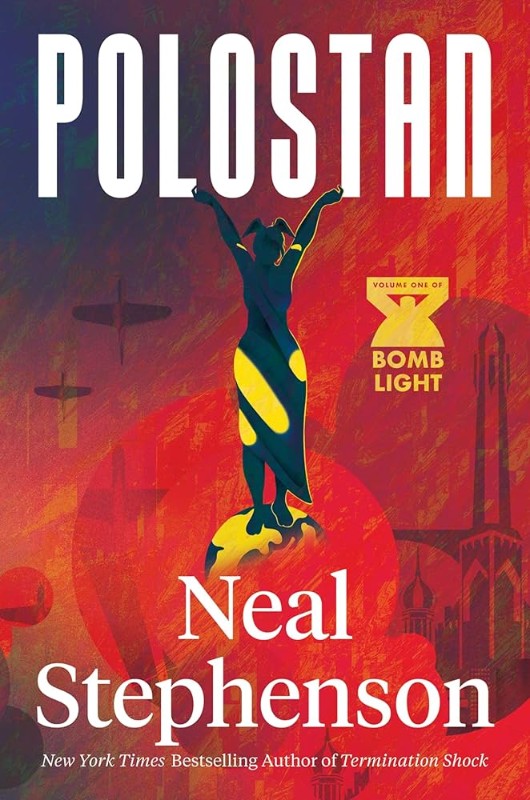
Finished — 2024-12-06
It’s startling how short this book is, and as I read it digitally I didn’t even have the clue of an uncharacteristically slim Stephenson. Apparently he’s trying something new, which is to release individual volumes the size of normal novels rather than compiling several books worth of material into one. As a person who enjoys immersing way into the perspective he crafts, which makes the world seem cooler and smarter, and makes me feel cooler and smarter, I may end up waiting until more of them are out before continuing.
The Anxious Generation

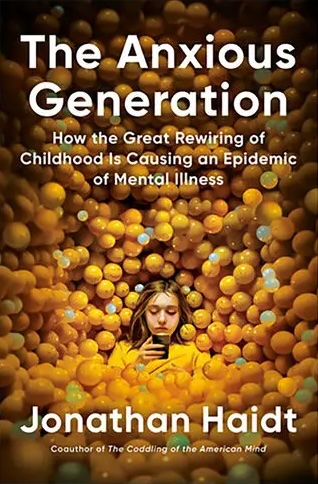
Finished — 2024-11-16
Started — 2024-08-31
Four aspects of “real-world” interactions
- Embodied
- Synchronous
- Accountable
- High barrier of entry and exit
Stephen points out a main message of Haidt’s book — people are growing up with too little nurturance of the spirit. This connects to my own wish for my kids to have a sense of reverence, for something.
Went to some trouble to find the Meta deck described as “chilling” in this book, and it was… just a normal marketing deck that probably didn’t significantly influence any product decisions, and which had some maliciously-misinterpretable slides way into the appendix. A significant Gell-Mann effect moment for me.
Original Love

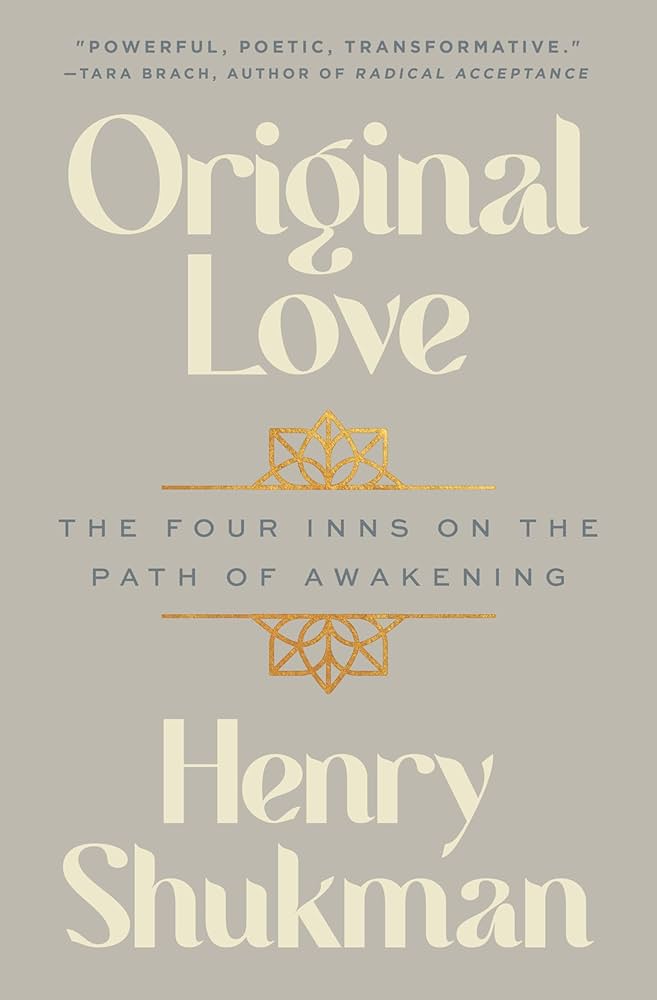
Finished — 2024-11-11
Started — 2024-08-16
Shukman has been my main conduit to Zen, and I’ve recently shifted from Sam Harris’s Waking Up course to his The Way course for a more focusedly Zen-based practice. I picked this up at the Elliott Bay Bookstore in Seattle, partly to have an excuse to look around for something there on my second visit in two nights, during a precious two-night stay there for work, my first time really spending time in the city since moving away eight years ago. This was a fine tour of the concepts undergirding the practices of The Way, and left me with even more of an appetite to find the right text for getting deeply into kōans, preferably in (modern) Japanese. I’ll treasure the memory of reading this with Robert Wyatt’s Comicopera in my AirPods at the Kanamachi McDonald’s, where I’d stopped for a maximally quick meal before picking up my kid at school: the pleasant discord of the Wyatt particularly amenable to blending with the background music and advertisements — logos and mythos; mind and soul.
Some say other life-forms are practicing too: trees are masters of stillness, fortitude, and graceful acceptance, and whales move through the seas suspended in oceanic awareness, communicating with one another across vast distances. Even smaller creatures move through their lives with the focus and intention of master meditators: ants tirelessly follow the call of their nature, and mice, moths, and patient cattle all practice and implicitly trust the life they are given.
We were hungry for inspiration. We tracked the contemporary poets we loved and then tracked the thread back to the poets they had loved: to Ezra Pound, Hilda Doolittle, and the Imagist poets of London just before the First World War. From them, we followed their provenance back to Wordsworth and Shakespeare, but also to ancient China, to the Tang dynasty poets they had loved and translated to Hanshan, the “Cold Mountain” poet, and Tu Fu, Li Po, and Wang Wei, who had wandered the ravines and cloud-wrapped peaks of the Middle Kingdom, stalked by vagabonds and monks who had given up on urban life and taken to the hills. There, entranced by lakes and streams, gazing at waterfall, drifting deep into the forests or high into the mountains, they wrote their clearest poetry. They drank wine and shed tears for lost friends. They also sat still in meditation, losing themselves, dissolving their minds into the peaks, becoming part of the land itself.
Notes on Complexity

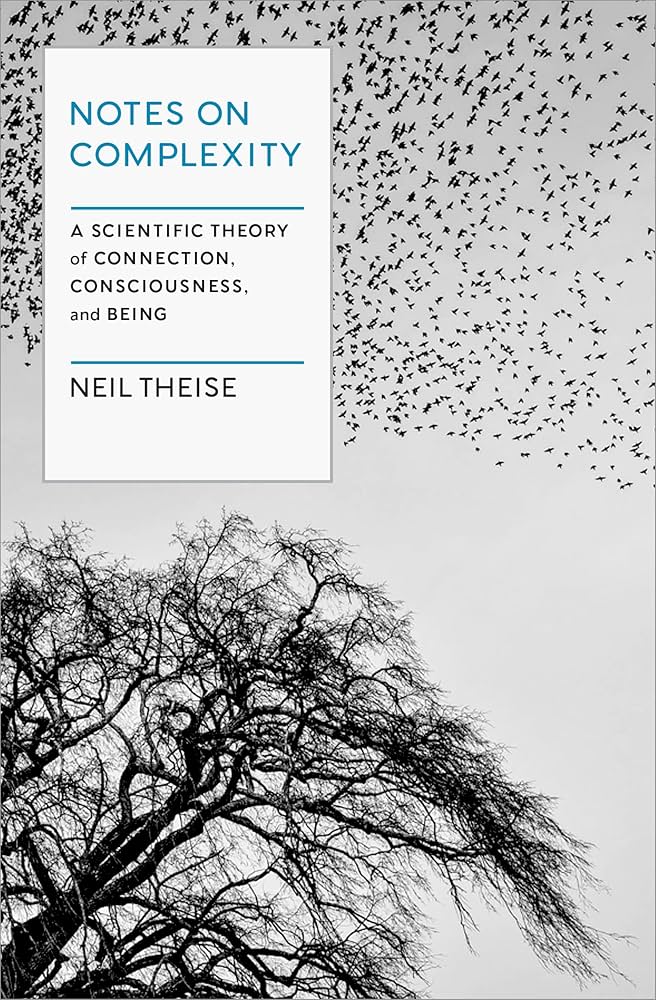
Finished — 2024-10-29
It felt significant to proceed through a big-ideas science book like this and grapple with it the whole way, in light of other reading and thinking I’ve done myself on the wide range of topics it presents. Making a point of taking notes while I read, treating it as an interactive process that makes a permanent mark, has been a major development for 2024. Compare this heap of notes to what remains of, say, my 2003 read-through of The Selfish Gene: a vague sense that it was a great, life-changing book and that genetics is really important.
As typed up on the flight back from Silicon Valley, where I discovered and bought this portable volume at Kepler’s Books.
Not sure I understand this definition of complexity even a little; it’s the “edge of chaos” where stability and chaos “pull in opposite directions”, but it’s actually more unpredictable than chaos?? And how can a computer simulation with the same starting conditions “never be predicted”?? How does a different outcome arise each time?
リカバリー カバヒコ

Author — 青山美智子Finished — 2024-10-28
Started — 2024
At the Katsushika Central Library, in the foreign language section looking for children’s books in English for my son, I discovered a display explaining a language learning method called “tadoku” (多読), or “copious reading”. Its principles include proceeding quickly through material that’s easy enough for you to enjoy, not referring to a dictionary when you do encounter unfamiliar words, skipping sections that are too hard, and guiltlessly setting aside anything that you’re not fully enjoying.
That day I set aside the hefty Japanese fantasy novel I’d been struggling through and went to my neighborhood shop Daiwa Books to find something I could proceed through more casually and briskly. Robin Sloan had recently recommended Aoyama’s What You Are Looking for is in the Library, in English translation, so I recognized her name on a new book in the recommendation display near the entrance.
The book comprises five loosely connected short stories revolving around an urban legend about a hippo statue in a local playground: if a part of your body is troubling you, touch the statue on that same part and you’ll be cured. Five people partake in the practice to heal various problems in their lives that are literally or figuratively associated with the brain, the eyes, the ears, et cetera. Each one then experiences a healing process which, of course, was actually about mending relationships, refreshing the perception of the self, or some other motion of the soul.
Forlesen

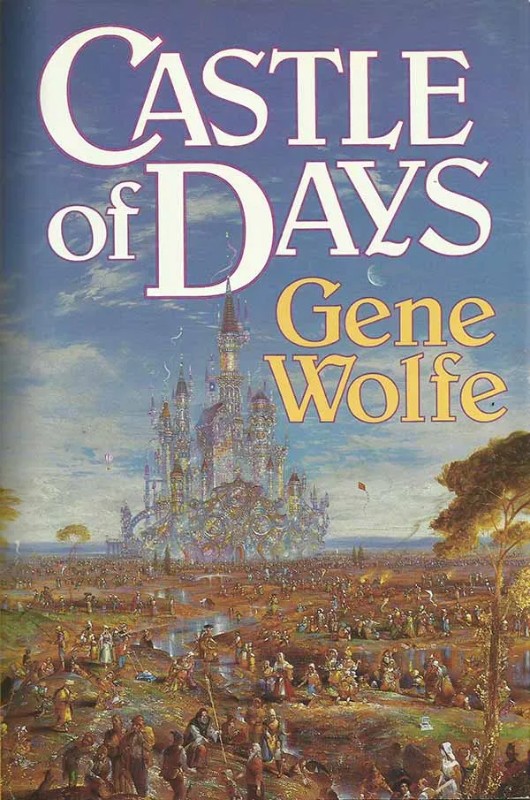
Finished — 2024-10-13
Started — 2024-10
This may be my favorite Wolfe short story yet. It came with a somewhat infamous reputation from Wolfe circles online, but I couldn’t remember why and can’t seem to dig up any of those discussions now. The blend of Wolfeian mystique, weird religiosity, and absurdly hilarious Kafka/Gilliamesque bureaucracy made for a satisfyingly surreal meal.
Postscript of January 2025 — I watched the television show Severance since reading this story, and just all of a sudden put the two together. Could there be an inspirational connection?
The Lathe of Heaven

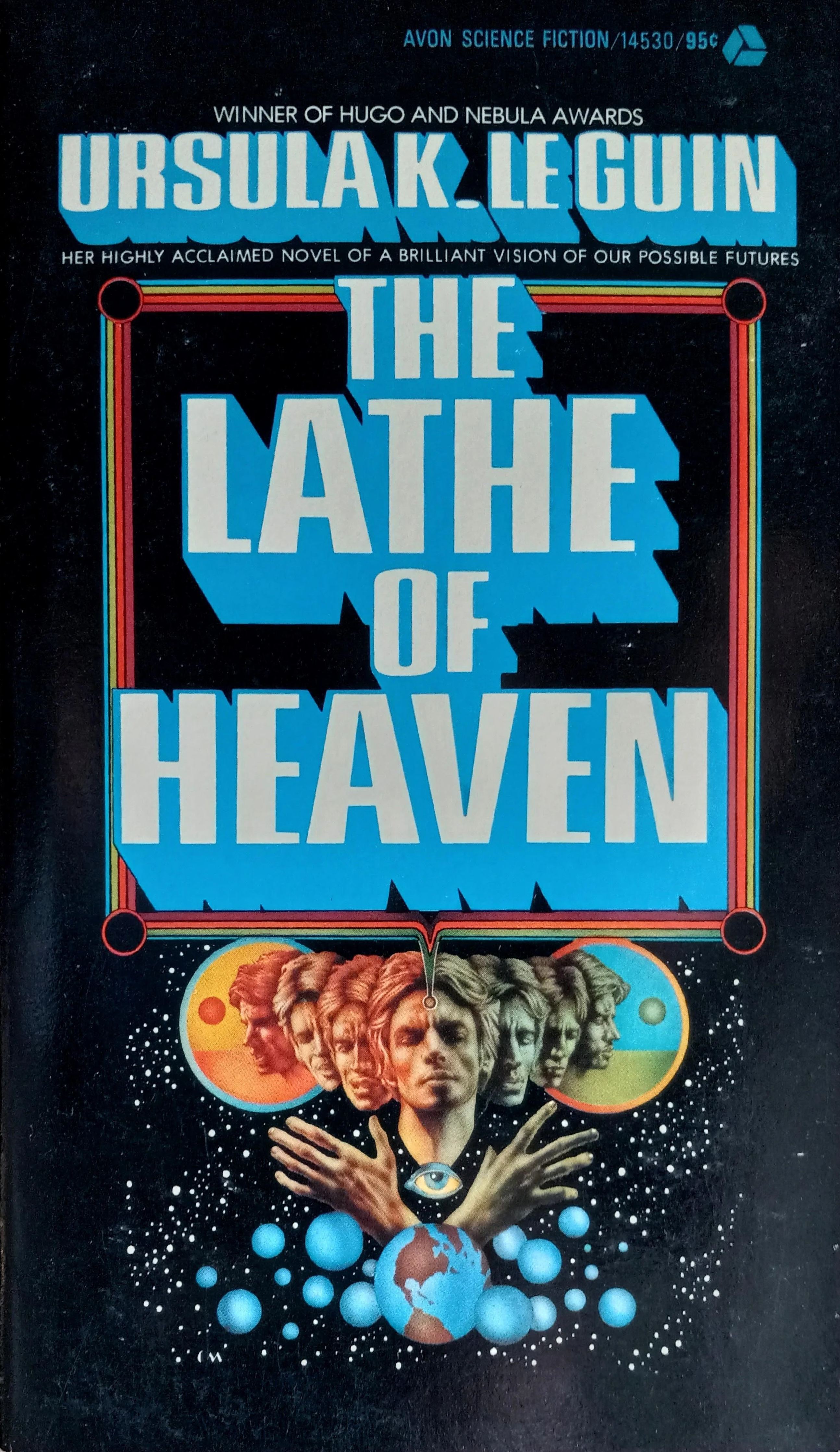
Finished — 2024-10-09
Started — 2024-09-29
While in Seattle for work, I met up with my best bookfriend and we walked to the Elliott Bay Bookstore. I invited him to choose any book in the store for me to buy and bring home, and he found Le Guin’s Lavinia. (We had an existing connection over her Always Coming Home, which we’d read through together a few years back.) Not far from it on the shelf was a Library of America compendium of five novels spanning her career and culminating in Lavinia, her last. So I chose that superset and committed to reading through them all. This was the first in the collection, from 1971, a sweet spot in the New Age era that I’d been freshly interested in since reading Anthony’s autobiography in which he eye-rollingly claimed that Le Guin had won a Nebula that was rightfully his; and had been craving more of since discovering Priest’s Inverted World.
In any case, the experience was thrilling from the level of the sculpting of individual sentences, all the way up to the Taoist theme running through the whole thing. I felt the moral questions and frequently paused to contemplate how one might even begin to formulate an algorithm for answering them.
“Come on up with me,” he said. “It’s raining already.” In fact it was, the endless warm drizzle of spring— the ice of Antarctica, falling softly on the heads of the children of those responsible for melting it."
The Safe-Deposit Box

Author — Greg EganFinished — 2024-10
Started — 2024
A little too dualist, “ghost-in-the-machine” for me, though there’s a bit of believable Permutation City dust theory in the mechanics of how the consciousness-untethering works. A philosophical sketch that was worth following along on. You could make a movie out of it.
The Caress

Author — Greg EganFinished — 2024-10
Started — 2024
What made us so fixated on “art-crime” in the 90s? This story, se7en, Bowie’s “Outside”, and so on. For some reason we thought that what we ought to be afraid of was the disintegration of restraint in creative expression, and that the scariest villains were going to be brilliant and well-resourced artists!?
Blood Sisters

Author — Greg EganFinished — 2024-10
Started — 2024
A fine thought experiement in scientific and medical ethics, with a bit of the grimy 90s Egan edge.
Inverted World

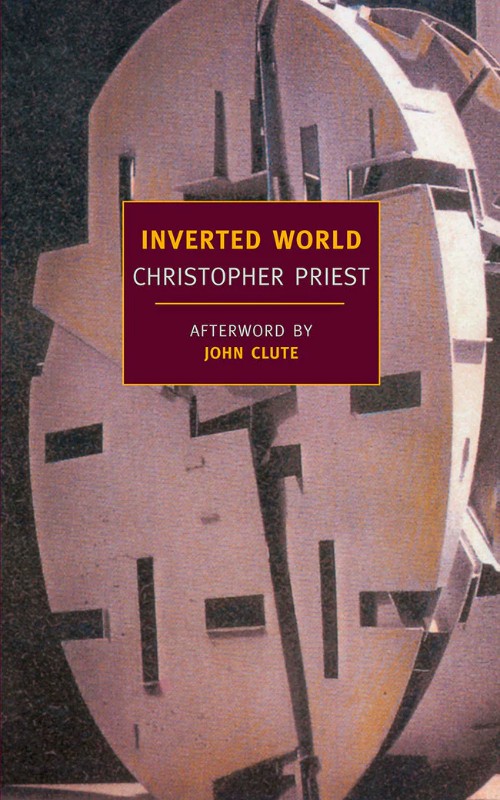
Finished — 2024-09-28
Started — 2024-09-14
After my reread of Bio of an Ogre, I was in the mood to better understand the New Age era of SF, and to find better specimens of its wild and challenging explorations of possible universes than Anthony. I had never heard of this book, nor of Priest himself, but upon hearing the briefest introduction decided that I ought to plunge in before learning anything further. As with music, it seems that somehow the 1970s just keep on giving.
Reading this over a Mexican burger at Brave in Kanamachi ended up being one of the more vivid reading experiences I’ve had, enshrined alongside The Source of Magic on the plane to San Jose as a kid, Children of the Mind in the De Pere bunk bed, A Fire Upon the Deep in Ballard after getting my wisdom teeth out, and so on. I look forward to the stores of pleasure waiting for me in the rest of Priest’s corpus. I particularly enjoy the mental state of being led through an aesthetically potent world, feeling just at the edge of having any idea of what’s going on, but trusting that something coherent is, in fact, going on.
Bio of an Ogre


Finished — 2024-09-14
Started — 2024-08-12
A lightly edited account from messages to a dear book-friend, on why I worked through a distant reread of this book over the course of a couple months’ worth of nights waiting for my kid to fall asleep.
So I’m semi-hate-rereading Piers Anthony’s autobiography
Because it was the first memoir I ever read, at probably about age 11, and I wanted to do a bit of personal archaeology on that time
Matter

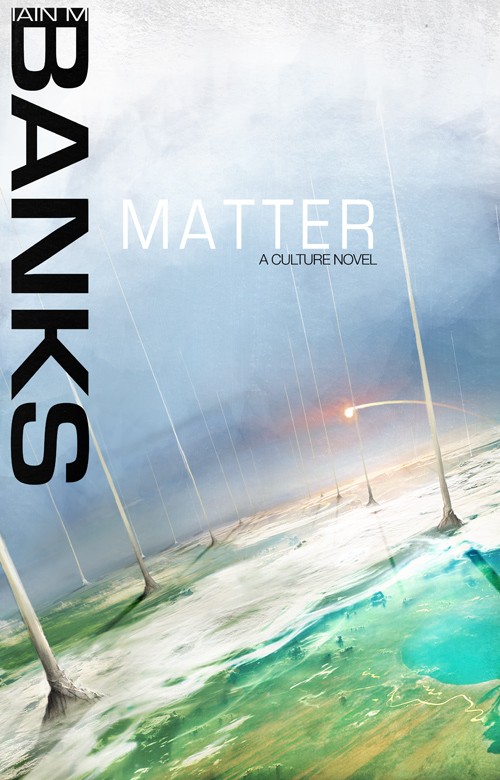
Finished — 2024-09-14
Started — 2024-06-08
Banks is a heavy meal, which I’m always glad to have enjoyed but reluctant to enjoy more than one of within the span of a year or two. The idea density is satisfyingly high, and I enjoyed a number of moments of staring off into space, savoring an evocative, galaxy-scale notion. But I did once again find myself wishing that the ever-building tension was toward something deeper, more universally philosophical, than the human adventure it ended up as. It does seem to me that Banks writes “true” sf, in a galaxy that is likely to really be out there and operating according to these principles in some corner of the greater multiverse.
Update of 2025-09-02 — On the back of my edition of Gene Wolfe’s Litany of the Long Sun is a blurb from an SF Eye review: “It releases delayed detonations of pleasure days after you’ve read it.” That measure of literature’s impact has stuck with me over the years, and I’ve recognized it in a number of works which are enjoyable enough while reading them, but that also make life itself more enjoyable for extended periods after putting them down. Matter has proven to be one of these works over the past year. I still often find myself thinking about various spheres of the Shellworld of Sursamen in particular.
内藤コレクション 写本 — いとも優雅なる中世の小宇宙
Finished — 2024-08-23An exhibition of illluminated manuscripts from the private collection of one Dr. Naitō, at the National Museum of Western Art in Ueno.
The strongest impression to me was one of devotion to knowledge and skill. A part of me can surely understand the view that accomplishment at this depth is what’s to strive for and admire, and that most of us alive today is frankly pathetic in comparison.
I also recognize that we’ve made a world where people can have a geometrically expanding breadth of experiences instead, and in an arguably “healthier” way. Arguably. And! We’ve made a world where someone like me can glimpse the eternal much more easily and reliably and and truly than any of these dudes who spent their whole life on it, arguably.
Our Mathematical Universe: My Quest for the Ultimate Nature of Reality

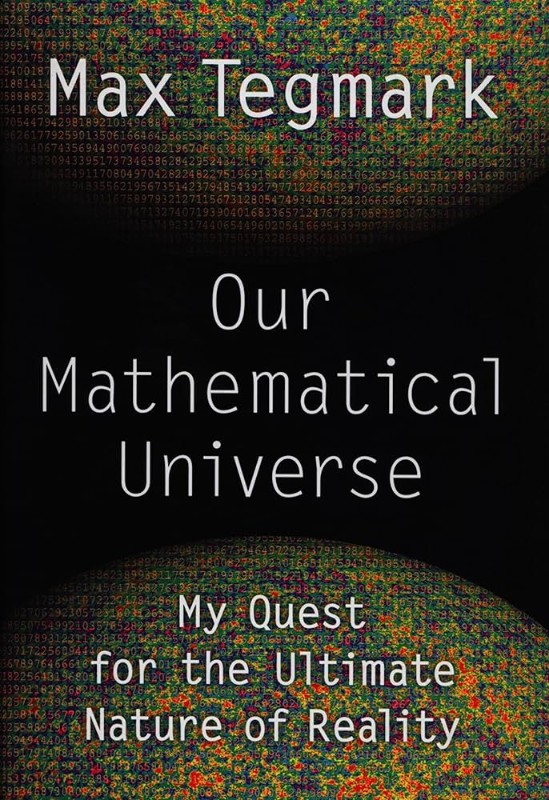
Finished — 2024-06-04
Third read, this time with a solid foundation of having lived by the philosophy contained within for nearly ten years. Took my time, highlighting passages with particular philosophical or spiritual resonance, and writing many interrogatory notes. This remains the most important book to me, and one I hope to return to again and again.
I Am A Strange Loop

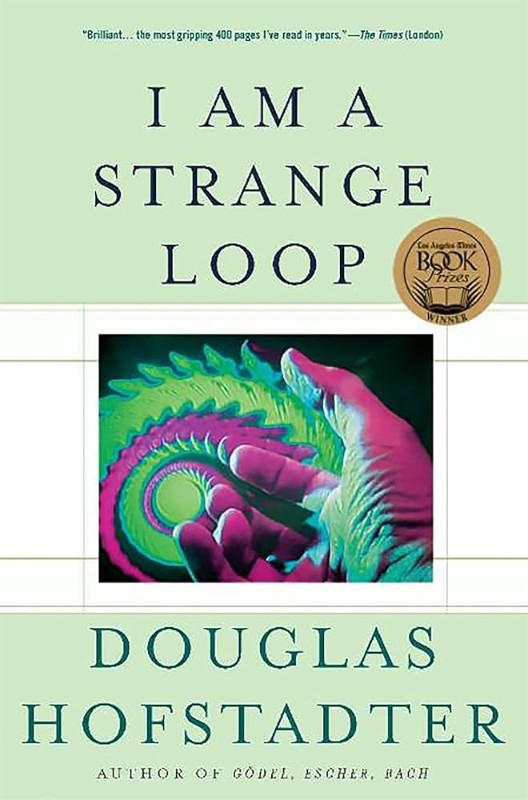
Finished — 2024-05-27
Finished this while technically still in the middle of Gödel, Escher, Bach, the message of which this book was conceived to more succinctly and clearly convey. I’d like to spend more of my life in mental modes like Hofstadter seems to inhabit: his particular formula of deep scientific understanding, philosophical import, genuinely warm emotion, and general joie de vivre.
I was especially struck by the arguments and personal stories about identity and even consciousness being distributed across brains (and other substrates) via the influence we impart — a Dawkinsesque “extended phenotype” of the self.
The Vanishing Tower

Author — Michael MoorcockFinished — 2024-04-15
Started — 2023-01
This one was a bit more of a slog than the other Elric I’ve read so far, but I do have pleasant memories of reading it on my phone in the back of an eight-person van carting two families around Tokyo in the earliest months of our arrival there.
The World Before Us

Author — Tom HighamFinished — 2024-03
Started — 2024-02
Some exhilarating moments of truly being able to imagine the deep history of humanity, especially the simultaneous existence of distinct human species. In particular, I was dizzied by the colliding of history and prehistory in the story of Eugene Dubois who was working in Indonesia to discover human species from millions to hundreds of thousands of years ago, but whose work was interrupted by the Japanese occupation in World War II, and required him to hide specimens until they could be safely studied.
Slaying the Dragon: A Secret History of Dungeons & Dragons

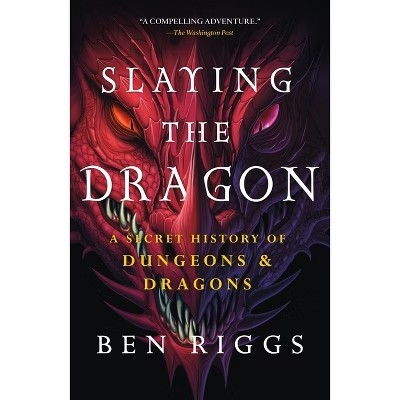
Finished — 2024-01-01
This was precisely the book I wanted after Game Wizards: an account that covered the culture, creativity, and business surrounding D&D during the formative era when I discovered and devoured it. I came away with the impression that tabletop roleplaying is such an extraordinarily powerful and important technology that it shone through even the abysmal environment and practices of the company where it was invented.
Game Wizards: The Epic Battle for Dungeons & Dragons

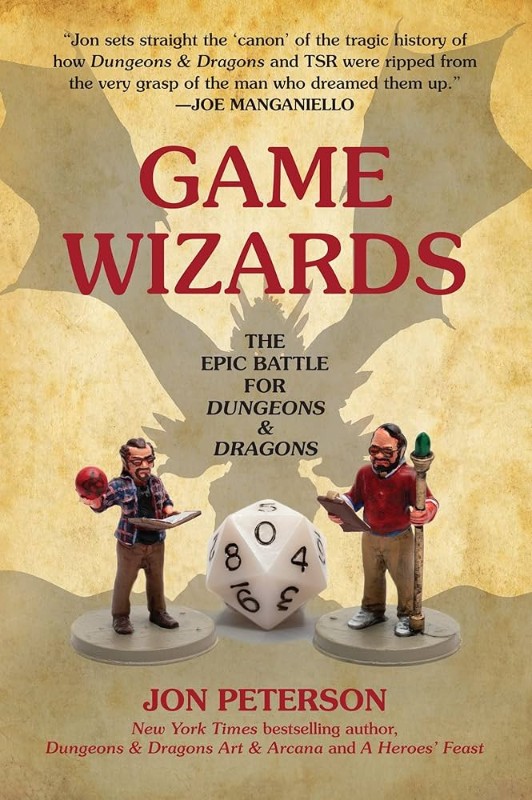
Finished — 2023-12-17
This was quite boring in a welcome way, and just the thing I needed for bedtime listening after establishing the habit with Geddy Lee’s memoir: Interesting enough in its pop-culture storytelling, while also forgiving of drifting off to sleep and having to jump back the next night. It left me craving more history after Gygax’s ouster in 1985, especially about the seemingly explosive 2nd Edition era in the 1990s, when I got into the game.
H.M.S. Surprise


Finished — 2023-12-13
Started — 2023
Another dose of pleasure, texture, and flavor to be infused into the rest of life. It’s astonishing to think that there are twenty of these.
My Effin’ Life

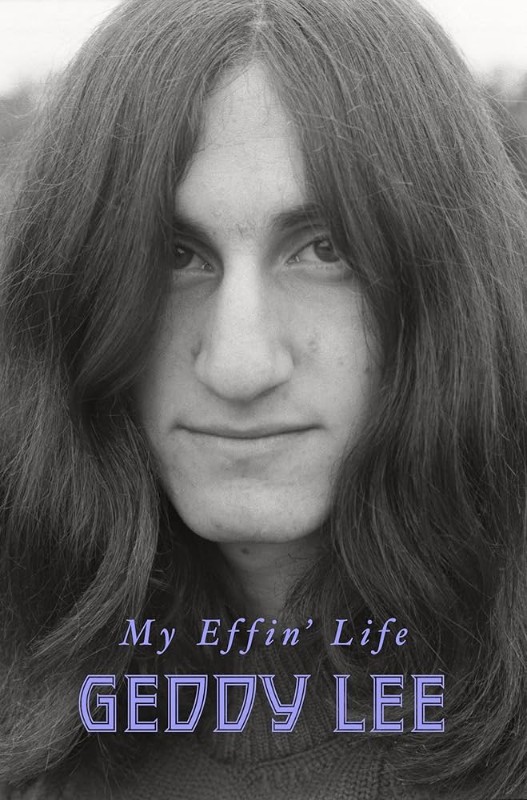
Finished — 2023-12
What a treasure it is to get to hear directly from the single most influential creative person on my young self. I’m a better person, who’s had a better life, than if this guy hadn’t been there doing his thing. I could listen to him talk about everything, indefinitely.
A Brief History of Earth

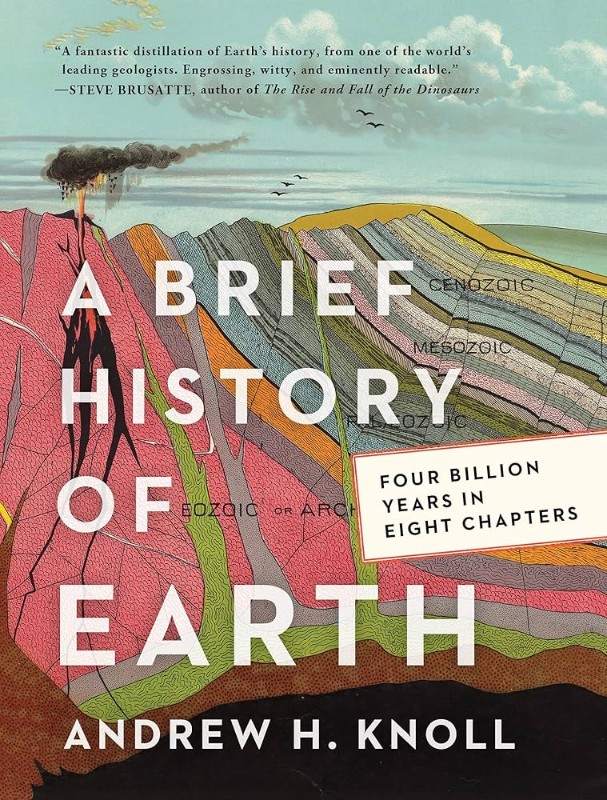
Finished — 2023-11
Started — 2023
I’d still like to understand more about the deep, geological-time history of this planet, especially in light of my suspicion that our planet is very, very weird and lucky. Plate tectonics and our unlikely escape from runaway processes leading to snowball planet; mass extinction events repeatedly failing to wipe the planet; ramifications for the Fermi paradox.
The Long Way to a Small, Angry Planet
Author — Becky ChambersFinished — 2023-11
I enjoyed occupying this chamber precisely like I expected to: stories that ask at every turn “what if everyone was flawed yet did their best to care for one another” rather than modern fiction’s usual “what if everyone was flawed and despicable”.
Mostly Harmless

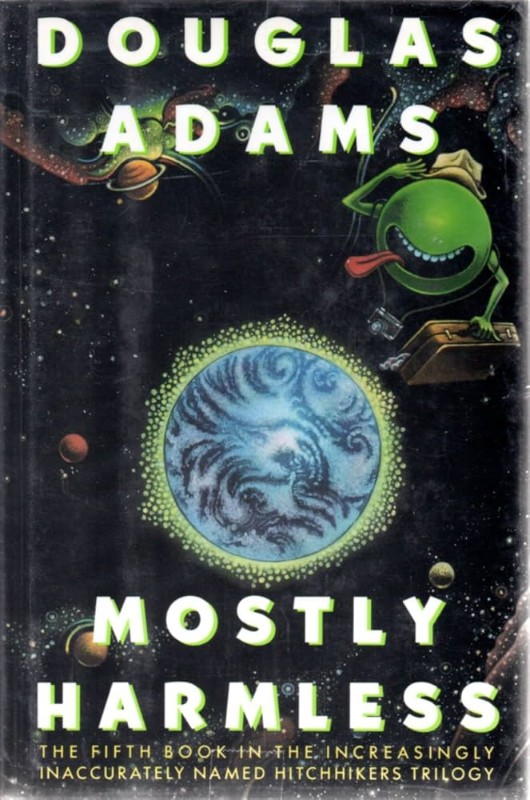
Finished — 2023-10-11
Started — 2023-10-02
From reading this final book when it came out, around age 11, I had an impression of it being darker and sort of resigned, compared to the zaniness of the prior ones. But upon rereading it as an adult, I found it to have a weird kind of hope and peace that fits well with my own understanding of possibility space and the multiverse.
Armageddon


Finished — 2023-10-11
Started — 2023-05-11
Just continuing my gradual reinterpretation of religious tradition as fascinatingly human history.
So Long, and Thanks for All the Fish
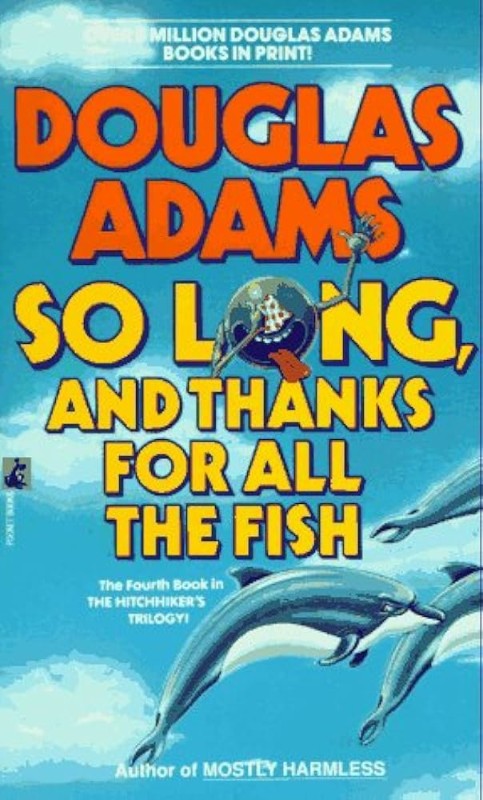
Finished — 2023-10-01
I was shocked by how immediately compelling and fresh this felt, after the first three novels; especially with my prior memory of the series having the inverse sentiment. What was an unfamiliar and confusing “grown-up” tone back then made for a more mature, warmer, wiser experience this time.
韋国日記
11

Finished — 2023-09-22Started — 2023-08-12
Ikoku Nikki is complete. I realized in conversation with a friend recently that much of what I love about this manga is that I have come away from it feeling meaningfully better-equipped in my own life. It’s not just entertainment or dwelling in a certain feeling or aesthetic, like much manga is — it’s got a philosophy of its own that’s worth learning from.
Man's Search for Meaning

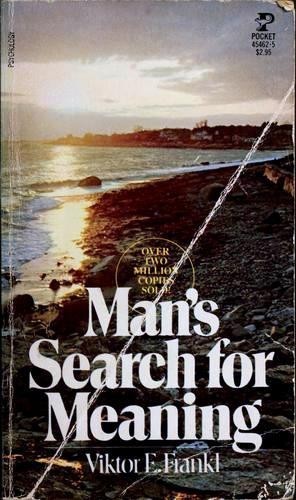
Finished — 2023-09
Started — 2023-09
Sign me up for the central idea of Logotherapy — that life is not about finding pleasure or even happiness, but meaning.
50 Years of Text Games


Finished — 2023-07-21
Started — 2023-06-17
I so looked forward to reading an entry in this book each night. It offered a warm welcome-home from a hobby subculture I’d been adjacent to since playing and building text games in the 1980s. This is how I want to replace the otaku-lifestyle video games I said farewell to over the past couple of years. Next I’ll go back, comb through the hundreds of games mentioned, and compile a list of titles to try.
Seveneves

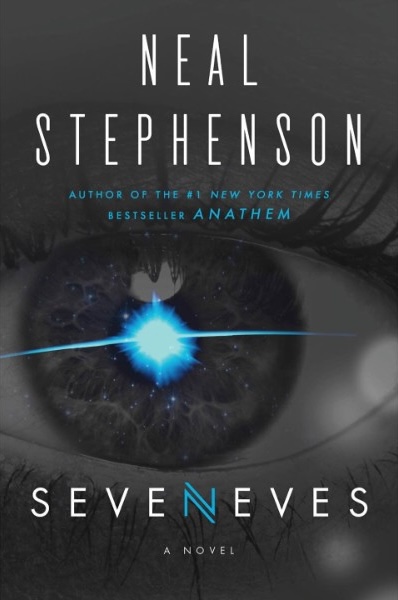
Finished — 2023-06-15
Started — 2023-04-20
2023 fortress reread. I don’t reread books often but I needed something familiar and guaranteed to be enjoyable, a fortress to return to while otherwise delving many dungeons in other areas of life. I could have set up some elaborate project for choosing just the right book to revisit, but that itself would have been a dungeon. This stood out from the Kindle library screen and before I knew it I was well into it.
It was even more captivating and enjoyable the second time around, and has joined its sibling Anathem on the “personal canon” shelf. Stephenson has both a myth-making mind and a scientific mind, and loves to show us again and again how real heroes and gods, resonant with our spiritual instincts, could come to be in a rational universe.
女の園の星
2

Finished — 2023-05-02Started — 2023-04-06
Sometimes I forget that I have a sense of humor that can be reached by media; but this series is sparking it repeatedly.
Post Captain

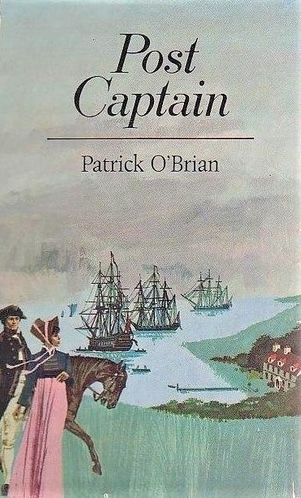
Finished — 2023-04-16
Started — 2023-01-14
An ordinary good book is pleasurable while you read it. But O’Brian seems to be able to create an experience that continues to deploy enjoyment throughout the day, as you reflect back on it. The echo of having read it last night, and the promise of getting to read it again tonight, infuses life itself with additional texture and flavor.
女の園の星
1

Finished — 2023-04-05Started — 2023-03-16
Every panel is a micro-masterpiece of warmth and quiet hilarity.
What’s Our Problem?

Author — Tim UrbanFinished — 2023-03-26
Started — 2019-09
I agree with most of the points in the book, but spent most of the book frustrated by how the points were made. Given the argument of the whole text, I expected more nuance, complexity, and compassion throughout.
The Hitchhiker’s Guide to the Galaxy

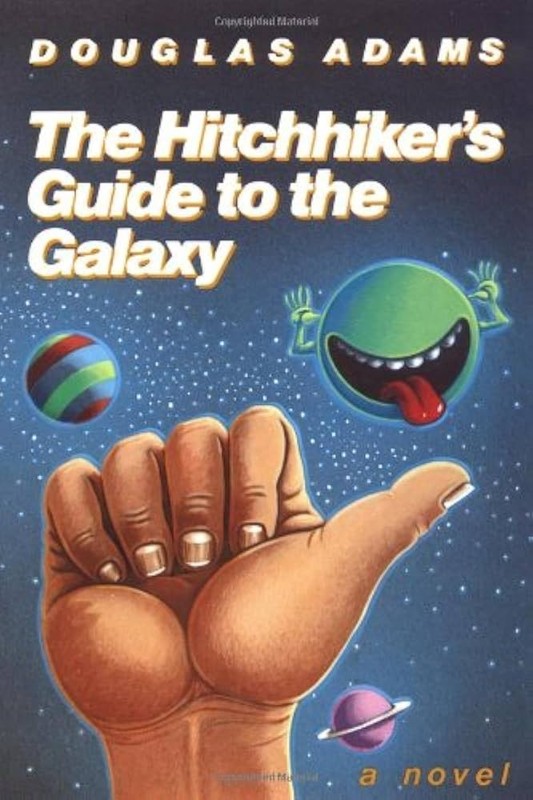
Finished — 2023-03-26
Started — 2023-01-10
Rereading this series along with my cousin Steve, after last reading it together in 1992. This story is so well-worn in my mind, through rereads, the Infocom game, the television show, and so on; that I barely noticed it going by. The theme that emerges for me as an adult reader is the absurd contrast between the overwhelming grandiosity of reality and the idiotic banality of life in it. The book itself is wry and hip, while no character is more than incidentally admirable; from clueless Earthlings to vastly powerful extra-dimensional beings.
韋国日記
10

Finished — 2023-03-15Started — 2023-02-13
Ikoku Nikki is quickly becoming an emblem of what I want manga to be. Each character is treated with love. Each scene is handled with grace. The entire stack of books exudes poetry and warmth. The message is delivered again and again: the world is hard and absolutely worth it.
If Loud Aliens Explain Human Earliness, Quiet Aliens Are Also Rare

Author — Robin Hanson, et aliiFinished — 2023-03-13T00:00:11-07:00
Started — 2023-03-11
Mostly glad I read this paper behind the popular grabby aliens model in order to find elements which my disagreement with generates ideas for a fiction project I’m pursuing. Most centrally — I sure do philosophically dislike the principle of mediocrity, and I don’t at all buy that expanding into the galaxy ends up looking like a worthwhile thing to do for advanced civilizations.
A Collection of Unmitigated Pedantry: The Nitpicks of Power

Author — Bret DevereauxFinished — 2023-02-04
Started — 2023-01
This series developed quite a bit my understanding of wanting stories to feel grounded in reality and like they are made of consequences. For me it completes a sort of trilogy of critiques of modern Tolkien screen adaptations, including Lindsay Ellis’s series about the Hobbit films and Moviewise’s video about the main Jackson trilogy.
The Biggest Ideas in the Universe — Space, Time and Motion

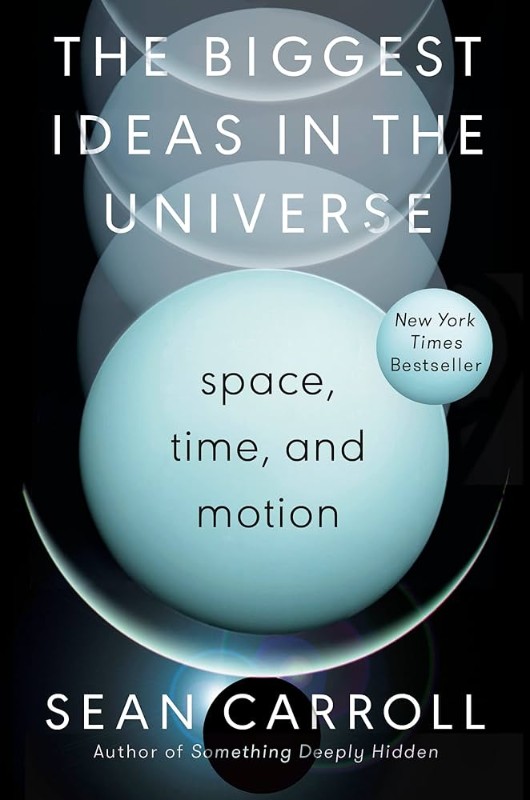
Finished — 2023-01-13
Started — 2022-12-05
For decades I’ve been reading physics books that purport to explain the nature of the universe without including inscrutable equations, but that end up requiring the reader to trust that the math undeniably and elegantly leads to this or that conclusion. It came gradually clear that in order to feel the significance of what we know, one really needs to understand the math at least somewhat, not just stories about the math and the people who discovered it. This book is the first of a promised trilogy from Sean Carroll, who was already one of my favorite science explainers. I appreciate his willingness to at least sometimes start from the most fundamental principles of what we know rather than defaulting to telling the historical sequence of who discovered what when and then who later found something more fundamental. The idea of the series is to cater to people who want to make the effort to understand the math, but don’t plan to study it at an academic or professional level. That’s me! After reading this I feel a dramatically deeper understanding of what is going on in the universe than any physics book has ever given me, and understanding the universe is one of my elementary particles of meaning.
The Restaurant at the End of the Universe

Author — Douglas AdamsFinished — 2023
2023 re-read with Cousin Steve. The darkness and cynicism about humanity came through much more strongly for me this time, and while the experience was enjoyable I found myself left wondering, “so what do you propose we do about it, then?”
Life, the Universe, and Everything

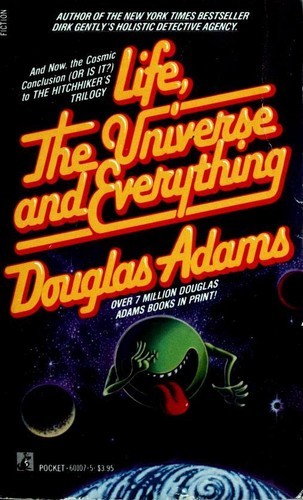
Finished — 2023
2023 re-read with Cousin Steve. This was my favorite as a kid in the 90s, which is unsurprising given the surreal wackiness.
The Weird of the White Wolf

Author — Michael MoorcockFinished — 2022-12-30
Started — 2022-12
Felt the crustiness more prominently in this volume of some of the oldest Elric stories. The iconic imagery, esoteric mythos, and personal significance offset the grim nihilism. It does feel like delving to the primal roots of Elden Ring, Shin Megami Tensei, and of course a thousand D&D campaigns.
The Fortress of the Pearl

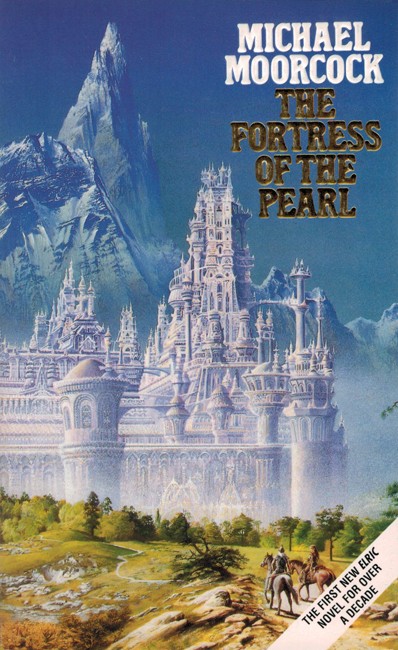
Finished — 2022-12
Started — 2022-11
Came back to my almost lifelong aspirations to get into Moorcock, ignited probably around 1989 when I saw my brother’s copy of The Cornelius Chronicles. I had tried once during a college librarygoing stint in 2003, then again upon visiting the prodigious Moorcock section at Powell’s in 2004, and then once again while making my way through Matthew Colville’s back catalog of videos about the history of gaming and geekery in 2021. The new Elric Saga omnibus editions are precisely what I needed to navigate the absurd tangle of titles and revisions. The story itself, being chronologically early but written much later, was refreshingly mature and thoughtful while still having the same surreally hip fantasy aesthetic. The Dream Realms in particular, and Elric’s passage through them, seem to be well-crafted allegories for common thought traps and how to avoid them.
A Prayer for the Crown-Shy

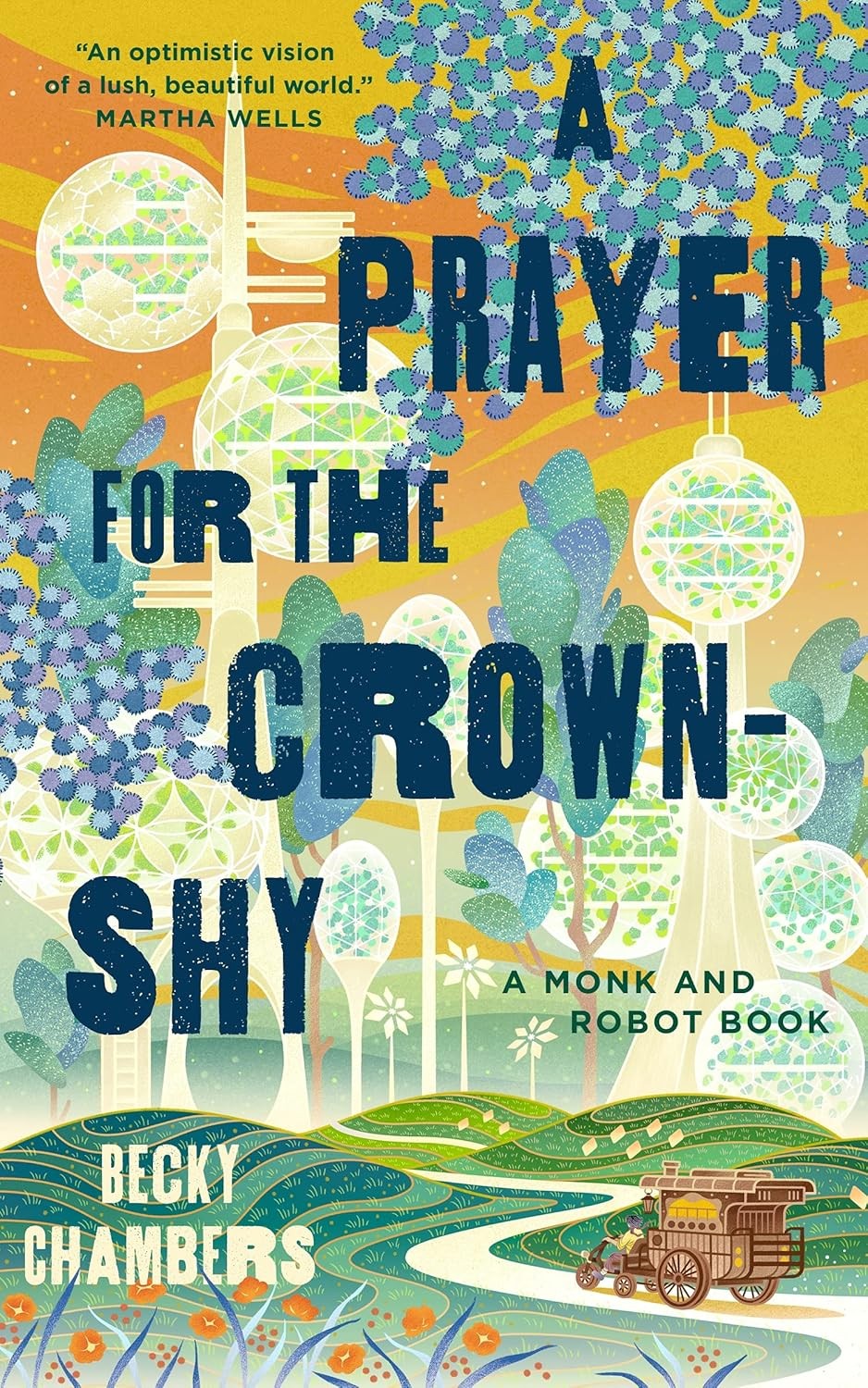
Finished — 2022-11
Started — 2022-10-26
I needed something comfortable after the harrowing trek through Liu’s Remembrance of Earth’s Past. This science-feelings story seemed to build upon the argument Graeber puts forth in The Dawn of Everything — namely that human societies are wildly weird and flexible, with no single correct or natural configuration. Reading that primed me to be more willing to believe in the post-gluttony solarpunk utopia it presents, though heck if I know how we might get there peacefully.
A Collection of Unmitigated Pedantry: Bread, How Did They Make It?


Finished — 2020
Started — 2020
I believe this was my introduction to ACoUP and its delightful blend of accessibility and academic rigor. This marked a renewed interest for me in getting to know the people of history.
Xenoblade 2
Finished — 2019-09-22Started — 2018-11-10
Platform — Nintendo Switch
Fond memories of semi-impulsively buying a Switch in Shinjuku, much like many console purchases before, and sneaking Xeno time during baby naps on our long stay in Tokyo. Lost interest for half a year, much like the first Xenoblade, then got way back into it during a hectic time at work that called for some mindless JRPG decompression.
Why Buddhism Is True

Author — Robert WrightFinished — 2018-02-26
Started — 2018-02-04
This book encapsulates the essential messages of a heap of evolutionary psychology and mindfulness books I’d added to my personal canon over the past several years. Now I can just recommend this one brilliant book for that whole complex of ideas.
Braving the Wilderness
Author — Brené BrownFinished — 2017-12-24
Started — 2017-12-11
“Stop walking through the world looking for confirmation that you don’t belong. You will always find it because you’ve made that your mission. Stop scouring people’s faces for evidence that you’re not enough. You will always find it because you’ve made that your goal. True belonging and self-worth are not goods; we don’t negotiate their value with the world. The truth about who we are lives in our hearts. Our call to courage is to protect our wild heart against constant evaluation, especially our own. No one belongs here more than you.”
The Gene
Author — Siddharth MukherjeeFinished — 2017-12-15
Started — 2017-11-24
Genetics and evolutionary biology might be the most deeply mysterious and strange field of study there is. I sort of resent that all this bizarre and profound discovery about the origins and mechanisms of life was going on while I was in school, but I learned nothing of it until I was an adult choosing books for myself.
The System of the World
Author — Neal StephensonFinished — 2017-12-10
Started — 2017-11-23
Thus concludes the Baroque Cycle. This was the last of his novels that I hadn’t read: an eight-volume, three-thousand-page opus that dominated my fiction consumption for a year and a half. Visiting the Metropolitan museum and the Tower of London while in the midst of it made the thing come alive. It’s good!
The All-or-Nothing Marriage
Author — Eli J FinkelFinished — 2017-11-24
Started — 2017-11-20
A survey of the history of the institution of marriage, and a study of what makes a modern marriage work. I appreciated the idea of keeping a “social portfolio” of people who can serve your various emotional needs rather than relying solely on your spouse. And the idea of temporarily descending the mountain of fulfillment during trying times, in order to just focus on surviving together is especially relevant right now!
Strangers in Their Own Land
Author — Arlie Russell HochschildFinished — 2017-11-18
Started — 2017-10-01
Guess what: Trump voters are human, and they operate according to genuine human emotions. A Berkeley professor explores first-hand how unrestrained pursuit of profit and indifference to human well-being has caused tragedy and despair in places like rural Louisiana, shaping the political opinions of families there.
The Gardener and the Carpenter
Author — Alison GopnikFinished — 2017-10-07
Started — 2017-10-03
Parents tend to want to shape their children to a blueprint, like a carpenter. But the best we can hope for is to give them a healthy environment to thrive in and grow their own way, like a gardener.
Life 3.0
Author — Max TegmarkFinished — 2017-09-26
Started — 2017-09-08
This author remains one of my favorite science explainers, this time taking on our possible AI future, which might turn out to be the most consequential thing that has ever happened. I recommend pairing this book with a playthrough of Universal Paperclips.
Believe Me — A Memoir of Love, Death, and Jazz Chickens
Author — Eddie IzzardFinished — 2017-07-21
Started — 2017-06-26
An utterly charming memoir from a truly unique, inspiring, and unflappable soul. Izzard was boldly transgender before it was widely understood, before we had good language for it, certainly before it was cool. And he happens to be a delightful and vivid storyteller, besides. The audio version is positively encrusted with bonus impromptu jokes and digressions and footnotes on footnotes; don’t even consider the text version.
The Highly Sensitive Person
Author — Elaine N. AronFinished — 2017-06-04
Started — 2017-03-03
Dramatically helpful and satisfying. This book has given me introspective concepts and tools I wish I’d had all my life.
Quiet — The Power of Introverts in a World That Can't Stop Talking
Author — Susan CainFinished — 2017-05-03
Started — 2017-03-28
If you are an introvert or you love one, please read this book. We aren’t broken!
Quicksilver
Author — Neal StephensonFinished — 2016; 2006-09-01
Started — 2016; 2006-08-14
Third attempt to read the Baroque Cycle in ten years.
How Proust Can Change Your Life
Author — Alain de BottonFinished — 2016-12-14
Started — 2016-11-28
I’ve been timidly edging toward the idea of reading Proust for quite a while now. This helped quite a bit.
Xenoblade Chronicles X
Finished — 2015-12-26Started — 2015-12-04
Platform — Wii U
This was not at all what I’d hoped Xeno would become, and much of the depth and mystique that made me such a fan of the previous games just isn’t here. But it’s fantastic at what it does. I eventually got genuinely hooked on exploring its colossal world, meeting its silly inhabitants, and beating up a wide variety of aliens. Much like the first Xenoblade, I find myself a bit homesick for it long after it’s over.
Soma
Finished — 2015-12-05Started — 2015-11-07
Platform — PlayStation 4
This had some of the most provocative decisions I have ever seen in a game. Not just mundane “whose life do you save” choices, but ones that are genuinely philosophical and that often split our group down the middle.
Persona 2 罪
Finished — 2014-11-09Started — 2011-05-16
Platform — PlayStation Portable
I played the P2 duology out of order, which was actually probably ideal. More late PSX-era graphics, more weird psychology, more Amano Maya, more Persona 2! These games are so emblematic to me of the strange, hip, geeky Japan of the 1990s.
初音ミク Project DIVA F 2nd
Finished — 2014-10-26Started — 2014-04-16
Platform — PlayStation Vita
I think Project Diva is the perfect artifact to represent the entire Vocaloid phenomenon. So many creative folks’ efforts went into creating it, but my favorite fact about this game is that the motion capture for when Miku plays guitar was done by one of my favorite bands, Gacharic Spin.
フェイト/ステイナイト[レアルタ・ヌア] extra edition
Finished — 2014-10-17Started — 2013-09-08
Platform — PlayStation 2
The joke was that nobody would want to watch a Japanese visual novel on Twitch. But a few friends ended up immersing ourselves in the day-to-day rhythms of this game together, and developed elaborate inside jokes and rituals for the narrative’s meditatively repetitive nature. I wish Nasu Kinoko was better at editing, though; I like drawn-out pacing but nearly every scene felt about 50% too long!
Gone Home
Finished — 2013-12-24Started — 2013-12-08
Platform — Macintosh
I am so ready for the generation of mature, intelligent, heartfelt games that this heralds. Played through it with my cousin Steve as a revival of our MacVenture days, then again on my own with commentary, then played through it for H.
The Legend of Heroes — Trails in the Sky
Finished — 2013-12-21Started — 2013-10-03
Platform — PlayStation Portable
Solid, meat-and-potates, earnestly pre-moe JRPG. Focuses on the experience of traveling around a rich fantasy world, which feels like it existed long before you came along, and discovering the complex relationships between its people and institutions. Doesn’t focus on gimmicks, technology, or unlockable swimsuits for your female party members. The promising beginning to what seems to be a truly epickal series.
Xenoblade Chronicles
Finished — 2013-12-14Started — 2012-04-21
Platform — Wii
Given how often I find myself wanting to go back and play this again, maybe it should have gotten five stars. The excitement of a brand-new Xeno title that Shishka and I could play together was huge; he’s the one who got me into Xenogears in the first place, so many years ago. The world and much of the story felt appropriately epickal for the Xeno name. The tedium of the back third of the game cost me so much enthusiasm, though.
Persona 4
Finished — 2010-11-07Started — 2010-08-27; 2010-11-14
Platform — PlayStation 2
The one game that Hiroko and I enthusiastically played through together in its entirety.
Ar tonelico 3 世界終焉の引鉄は少女の詩が弾く
Finished — 2010-07-27Started — 2010-02-22
Platform — PlayStation 3
Impressions; Button Trance: Ar tonelico 3; Addendum: Of Tilia
Ar tonelico 2 世界に響く少女たちの創造詩
Finished — 2008-04-14Started — 2007-11-01
Platform — PlayStation 2
Button Trance: Ar tonelico 2
SIMPLE2000シリーズ Vol.50 THE 大美人
Finished — 2006Started — 2006
Platform — PlayStation 2
The people at Pink Godzilla practically made me take this when I bought some other game there, and I can see why. It made for a pretty dumb couple of hours at Shishka’s house.
Xenosaga エピソード I 力への意志
Finished — 2002-04-22Started — 2002-03-04
Platform — PlayStation 2
The announcement of a new Xeno game marked my first phase of fervent video game geekery. I ended up teaming with some folks online to create a guide and script translation.
サクラ大戦
Finished — 2002Started — 2002
Platform — Dreamcast